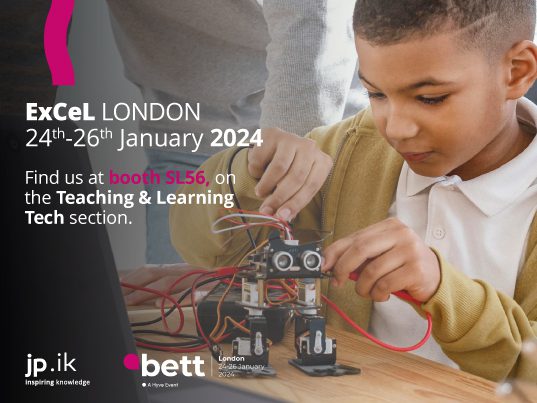Among the distinct challenges that our contemporary society is facing, one of the most pressing ones is, or at least it should be, opening ways, innovating and taking advantage of the existing media, so that education can reach more people.
Within this perspective, it is fundamental to foster a more inclusive education that reaches out to different groups with distinct backgrounds and specific needs. In order to ensure a universal access to a quality Education, researches point out to operate on three fields: model or methodology; Education Policies; and Technology for Education.
Inclusion means it is possible to everyone to actively participate in the daily activities of the community they belong to without suffering any type of rejection or segregation for any reason.
UNESCO defines inclusive education as “a process of addressing and responding to the diversity of needs of all learners through increasing participation in learning, cultures and communities, and reducing exclusion within and from education.†Therefore, in order to make an inclusive Education come true, it is mandatory to transform approaches and not only techniques and dynamics.
Without any doubt, technology for education is a fundamental factor to a more engaging teaching and learning, as it is essential to achieve the Goals of the Global Agenda of Education 2030. Among those embodied in the Sustainable Development Goal No. 4 that states “Guarantee quality inclusive and equitable education and promote lifelong learning opportunities for allâ€, UNESCO was entrusted with directing this agenda with its partner organizations and institutions.
From the above, we must keep working to improve and enhance the integration of technology that fosters collaboration, dissemination and uptake of education itself, measurement, evaluation, student progress, teacher quality, and with it the inclusion. So then, we can identify online education as a good inclusive alternative.
By talking about inclusion, we should refer diverse sectors, as the Special Educational Needs, the one regarding disciplinary exclusions or to host groups vulnerable to exclusion, gender equity, the need for education for all; that is to say, a global and equal education.
Thanks to its characteristics and various advantages, online education makes it is possible to offer opportunities for people, with certain special needs or in socially and geographically complex situations, to have access to formal and informal academic training. Even supporting regions, such as Latin America, where lack of coverage and infrastructure are still a necessity, as well as improving the quality of education and its processes, and eliminating different discrimination by enhancing the right to education. Further strengthening or integrating the various educational and social promotion systems.
Concrete examples of this are computer reading programs designed for people with visual weakness or blindness can listen to the content of any document; classes and tutorials with subtitles that favor those who cannot hear; dictation devices for those who do not see; and people who live in remote areas from the big cities where the face-to-face universities are located and who because of technology and connectivity, have the opportunity to study.
With the use of IT, communication, space and time barriers are broken, facilitating access to information regardless of conditions, place of residence, physical, social or cognitive characteristics of people.
With the use of IT by leveraging inclusive education, we can foster the improvement of life conditions of marginalized groups (such as ethnic minority groups or elder citizens who are “forgotten†in some countries).
In order for the online modality to be really an alternative against educational exclusion, it is necessary to work from different variants such as Pedagogy (with the correct design and development of plans and contents); Software Engineering (in terms of innovation and creation of platforms and applications accessible, intuitive and appropriate to each user); including Administration, Politics and Law, for that all the institutions involved promote and apply public and regulatory policies that favor education. Since today it is one of the issues that concern, both the educational policy agendas, and inclusive education, which has been uneven in the various countries, mainly in Latin America.
In this way, therefore, we still must answer to a series of relevant challenges, among which are the access to the broadband network and the lack of a solid digital literacy.
We should promote Internet access as a citizen right and promote it through the collaboration and cooperation between governments and institutions.
Undoubtedly, the integration of technology is one of the key variants today and its integration in the context of education must be planned according to the education environment, aiming to promote individual growth and empower social and digital inclusion.
 Dr. Julieta Palma Anda is the General Director of the Universidad Internacional de La Rioja, in Mexico and she is also the Vice-Rector for Institutional Relations.
Dr. Julieta Palma Anda is the General Director of the Universidad Internacional de La Rioja, in Mexico and she is also the Vice-Rector for Institutional Relations.
She has a Degree in Communication Sciences from Tecnológico de Monterrey, Campus Ciudad de México and a Master in Humanistic Studies and in Education from the Universidad Virtual from Tecnológico de Monterrey. She also has a PhD in Knowledge Society and Integrated Technologies, in Spain.
Prior, she was the General Director of the Universitat Oberta de Catalunya for Latin America, Director of the Virtual Campus of the Escuela Bancaria y Comercial, Director of Instituto Latinoamericano de la Comunicación Educativa, and she was Public Relations Coordinator of the Universidad Virtual del Tecnológico de Monterrey, in México.
She was also Producer of Educational Television, Corporate Communication Consultant, Coordinator of Linking and networks of OAS- Virtual Educa and she was also part of the Gender Equity Commission of CONACYT. She is also a Member of the Academia Mexicana de Informática (AMIAC).
Dr. Julieta is frequently invited as an expert in a multiplicity of International Technology and Education Forums, Ministerial Summits of Education and Heads of State.



